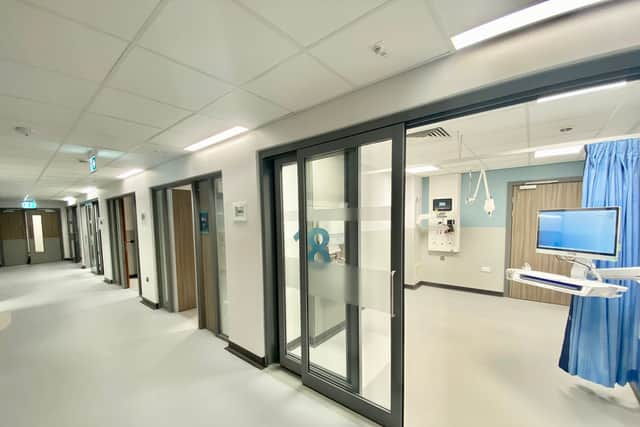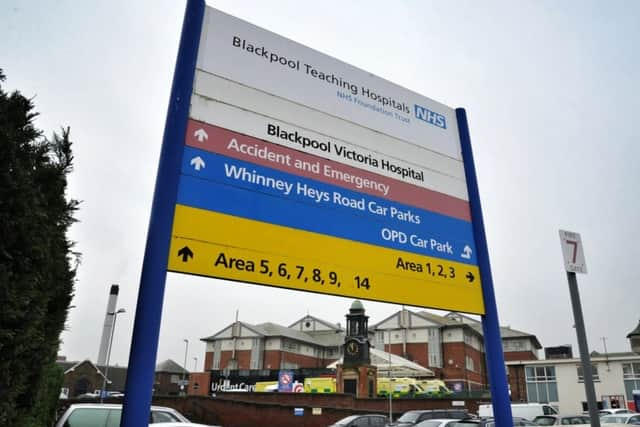NHS boss says latest figures show fewer patients waiting more than 12 hours at Blackpool Victoria Hospital A&E
and live on Freeview channel 276
Pressure has continued to mount on the emergency department at Blackpool Victoria Hospital with 16 per cent more patients arriving by ambulance last year. But bosses say investment in new urgent care facilities – which saw the last phase of the £13m emergency village open just before Christmas – is helping ensure patients are seen more quickly.


Steve Christian, deputy chief executive of Blackpool Teaching Hospitals NHS Trust, told a meeting of the hospital board ambulance handover times had improved with 44 per cent fewer delays under an hour.
Advertisement
Hide AdAdvertisement
Hide AdHe said year-on-year figures showed a 20 per cent reduction in the number of patients spending more than 12 hours in A&E, while the average time for patients to be assessed for treatment had come down to 10 minutes from 43 minutes. He told the board meeting: “We are on a journey, we know we have to make greater improvements to meet national standards.”
Mr Christian said staff have had “to wrestle with a three-year capital development, they have modernised practices and processes so we can practice the best emergency medicine that is possible given the challenges.”
The emergency village, which includes a bigger, upgraded waiting room and a minors area for treating emergency cases that are not life-threatening, has made a difference. But challenges remain – including to free up beds by discharging patients safely to alternative care in the community. Currently around 105 beds (14 per cent of the total) are occupied by patients who do not need to be in hospital.


The meeting heard increased levels of deprivation and more admissions from patients assessed at their GP surgeries continued to put pressure on the hospital. Mr Christian said over the last 12 months there had been “quite a significant rise” in the number of patients sent to hospital by healthcare professionals working in primary care.
Advertisement
Hide AdAdvertisement
Hide AdHe also warned of a trend towards “some of our most deprived areas starting to see increases in need to access emergency care” which was due to increased pressure on GP services. The board was also told strikes by junior doctors had added to the winter pressure. Chief executive Trish Armstrong-Child said the hospital had been able to keep services going but they were “heavily compromised.” Some outpatient clinics, diagnostics and theatre lists had had to be cancelled.
Comment Guidelines
National World encourages reader discussion on our stories. User feedback, insights and back-and-forth exchanges add a rich layer of context to reporting. Please review our Community Guidelines before commenting.